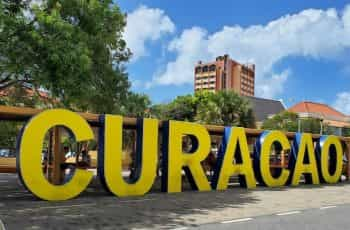All Gambling Ads Banned in Lithuania
All forms of gambling advertising will be officially prohibited in Lithuania starting from July 1st, 2021, following a vote in the country’s parliament (Seimas) which amended the state’s Law on Gambling. The ban will affect promoting gambling not just on television and radio but also special events, test games, promotions, discounts, gifts, and other forms of incentives.

The Lithuanian parliament (Seimas) has elected to ban outright all forms of gambling advertising in the country in efforts to curb problem gambling. The ban arrived following a vote which amended the state’s Law on Gambling. ?EvgeniT/Pixabay
Ban is Attempt to Tackle Problem Gambling in the Country
Lithuania’s parliament (commonly referred to as Seimas) has chosen to amend the country’s Law on Gambling to prohibit outright all forms of gambling advertising. The legislative move essentially amounts to an official ban on all forms of promoting gambling in Lithuania, including but not limited to radio and television, as well as special events, test games, promotional offers, discounts, gifts, and other forms of incentives.
With gambling advertising being already significantly restricted in the Baltic nation, the Lithuanian government claimed that this blanket ban is intended to help combat the issue of problem gambling in the country, along with attempting to reduce the allure of gambling for all citizens and hopefully lower the amount of funds being spent on gambling.
The gambling advertising ban is expected to extend to both land-based and online gambling markets in Lithuania.
Gambling Advertising in Lithuania Already Limited
The passing of Lithuania’s recent ban on all gambling advertising is only set to come into effect as of July 1st, 2021. However, the promotion of gambling is already noticeably restricted in the nation, following reforms to Lithuania’s gambling legislation and regulations.
Following the passing of yet another bill in 2020 by the country’s parliament, all gambling advertisements have been obligated to include an accompanying warning about gambling-related harm as of July 1st, 2020.
The bill arrived as an amendment to Article 10 of the country’s gambling laws, having been first proposed and championed by Mykolas Majauskas of the Homeland Union Lithuanian Christian Democratic Party.
The bill was swiftly passed by consensus, after no objections were raised at its first reading.
Furthermore, it is already prohibited to incite gambling by offering players gifts to gamble, as well as to organize gambling outside of licensed venues or simply not through an approved operator’s website.
Recent Survey Revealed Popular Support for Advertising Ban
The perhaps shocking move to ban all forms of gambling advertising in Lithuania does not, however, exist in a vacuum: a recent survey conducted in November by the country’s Gambling Supervisory Authority revealed widespread public support for the ban.
1,001 adults were quizzed as part of the survey, with 76% of them holding the belief that gambling advertising should be reduced, 52% believing it should be banned outright, while 22% stated they believed solely lottery advertisements should be prohibited.
Out of the surveyed total, 12% of respondents admitted they had gambled during the course of the past year, with men aged 29 or under being the most likely group to gamble.
43% of respondents stated that they mostly played lotteries, which was down from 51% compared to the Gambling Supervisory Authority’s previous year’s survey, with those aged 40-49 most likely to play in this vertical.
Most interestingly, perhaps, might be the fact that just under half of the survey’s respondents (47%) said they had even seen gambling advertisements in the first place, yet the majority of respondents ended up standing behind the new controls for gambling marketing which have now been introduced.
Fines Recently Handed Out for Illegal Advertising
The main regulatory authority in Lithuania dealing with the country’s gambling market, the Gambling Supervisory Authority, cracked down on a series of illegal gambling advertisements as recently as April 2021.
With the blessing of a court decision enabling it to take action, Lithuania’s Gambling Supervisory Authority fined an employee of a digital media business for running illegal gambling advertisements on basketball news website Krep?inis.net.
Following an investigation, the website was discovered to be hosting gambling ads which are strictly prohibited under Lithuanian regulations. The advertisements featured elements such as slogans and animated backgrounds, as well as promotional bonuses, while failing to provide the mandatory warnings about gambling-related harm.
Describing the basketball news website as a “refuge for illegal gambling advertising for several years,” the gambling authority was supported in its action against the digital media businesses’ employee by the capital’s Vilnius City District Court, which ruled that gambling was advertised in a way that breached Lithuanian law because the website specifically targeted Lithuanian customers — a practice prohibited under Lithuanian law.
Operating under the country’s Ministry of Finance, Lithuania’s Gambling Supervisory Authority is toughening its stance against unlicensed online gambling operators who are seen to be targeting the Lithuanian customers.
The regulator reiterated that only licensed operators holding the specific licenses and permission for online gambling are authorized to offer online gambling services in the first place. It has also warned that it will be issuing warnings to businesses which are being non-compliant.
Gambling Supervisory Authority Sought Enforcement Powers in December 2019
The very same Gambling Supervisory Authority sought to broaden and strengthen its legislative and regulatory powers in December 2019, lobbying the Vilnius Regional Administrative Court for the ability to block access and payments.
The regulatory authority attempted to earn these powers with the purported goal of tackling unlicensed gambling websites. Some of these abilities would take the form of, for example, issuing legally binding orders to demand internet service providers (ISPs) block unlicensed websites. It would also be able to force payment processing companies to suspend all transactions with such businesses.
 Online Casinos UK
Online Casinos UK



